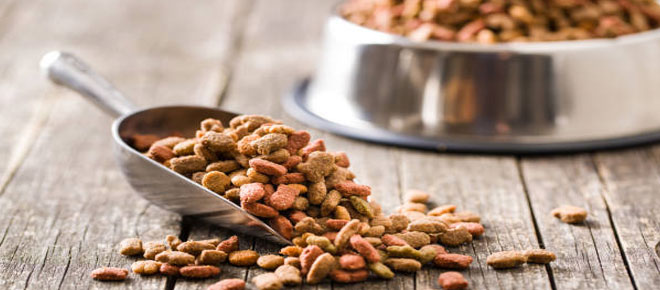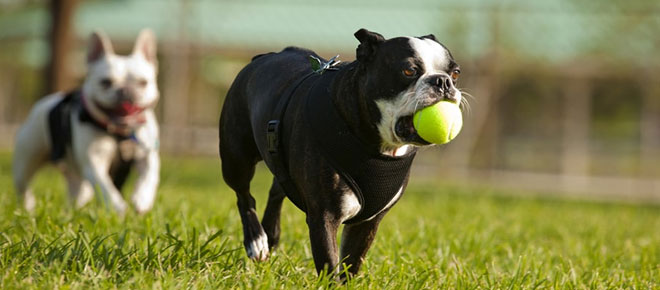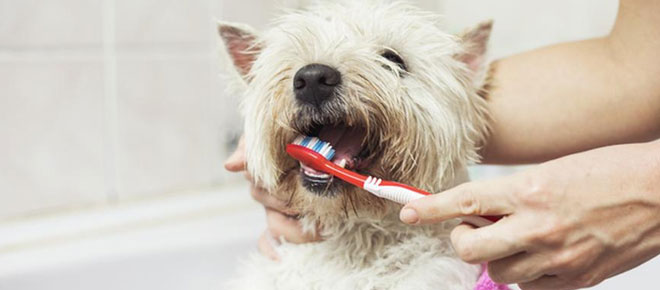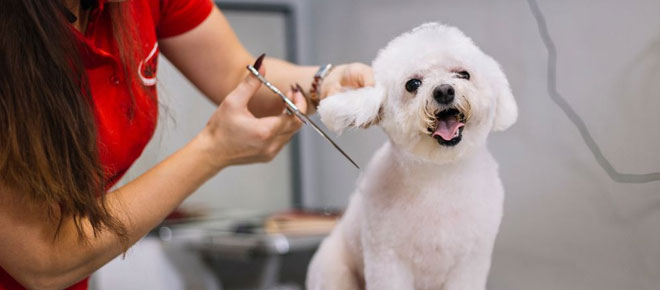Owning a pet comes with immense joy and responsibility. As pet owners, we must ensure the health and well-being of our furry companions. From proper nutrition to regular exercise and preventive healthcare, there are many aspects to consider when it comes to maintaining your pet's health. In this comprehensive guide, we'll explore essential care tips that every pet owner should know to keep their beloved pets happy and healthy.
Nutrition
- Quality Diet: Nutrition is paramount for your pet's well-being, and a quality diet is fundamental to their health. Choose pet foods made with high-quality ingredients, including real meat, whole grains, and vegetables, while avoiding fillers and artificial additives. Tailoring their diet to their specific needs ensures they receive essential nutrients for optimal health and vitality. With a nutritious diet, your pet can thrive, maintaining a healthy weight, strong immune system, and overall well-being for a happy and fulfilling life by your side. With the Petstock Coupon, you can provide your pet with premium nutrition at a great value, ensuring their health and happiness without breaking the bank.
- Fresh Water: Ensure that your pet has access to clean, Fresh water is essential for your pet's health and vitality. Providing access to clean, fresh water at all times is crucial to keep them hydrated and maintain proper bodily functions. Whether they're a dog, cat, or another type of pet, adequate hydration is essential for digestion, circulation, temperature regulation, and overall well-being. Regularly replenishing their water bowl and ensuring it's free from contaminants ensures your pet remains healthy and hydrated. By prioritizing fresh water intake, you help support their overall health and contribute to their longevity, ensuring they stay happy and hydrated throughout their life.
- Portion Control: Portion control is vital for maintaining your pet's health and preventing obesity-related issues. Measuring out the appropriate amount of food for each meal helps prevent overeating and ensures they receive the right balance of nutrients. Consider factors such as age, weight, activity level, and breed when determining portion sizes. Avoid free-feeding and stick to scheduled meal times to regulate calorie intake. Additionally, consult with your veterinarian to determine the correct portion size for your pet's specific needs. By practicing portion control, you can help your pet maintain a healthy weight and reduce the risk of obesity-related health problems, promoting a longer and happier life.

Regular Exercise
- Daily Walks: Daily walks are crucial for your pet's physical and mental well-being. Regular exercise helps maintain cardiovascular health, muscle tone, and joint flexibility. Additionally, walks provide mental stimulation, allowing pets to explore and engage their senses. Aim for at least 30 minutes of walking each day, adjusting the duration and pace based on your pet's age, breed, and fitness level. Establishing a routine of daily walks strengthens the bond between you and your pet while ensuring they lead a happy, healthy, and active lifestyle. Regular exercise also helps prevent obesity and related health issues, promoting longevity and overall well-being.
- Interactive Toys: Interactive toys are essential for keeping your pet mentally stimulated and physically active. These toys engage your pet's senses and encourage natural behaviors like chasing, hunting, and problem-solving. Interactive toys come in various forms, including puzzle feeders, treat-dispensing toys, and interactive balls. They provide mental enrichment, alleviate boredom, and prevent destructive behaviors caused by lack of stimulation. When choosing interactive toys, consider your pet's size, age, and preferences to ensure they are suitable and safe. Incorporating interactive toys into your pet's daily routine enhances their overall well-being and strengthens the bond between you and your furry friend through fun and engaging playtime. With the PETstock Discount Codes, you can treat your pet to a variety of interactive toys at a great discount, ensuring their happiness and well-being without breaking the bank.
- Indoor Play: Indoor play is essential for keeping your pet physically and mentally stimulated, especially during inclement weather or when outdoor activities aren't feasible. Create a designated play area indoors where your pet can engage in active play and exercise. Use toys like balls, ropes, and interactive puzzles to keep them entertained and encourage natural behaviors such as chasing and pouncing. To keep kids interested and avoid boredom, rotate toys frequently. Interactive play sessions also provide an opportunity for bonding between you and your pet. By incorporating indoor play into your pet's routine.

Veterinary Care
- Routine Check-ups: Routine check-ups are essential for maintaining your pet's overall health and well-being. Schedule regular appointments with your veterinarian to monitor your pet's health status and address any potential concerns promptly. During these check-ups, your veterinarian will conduct a thorough physical examination, assess your pet's weight, dental health, and vital signs, and administer vaccinations or preventive treatments as needed. These routine visits also provide an opportunity to discuss your pet's diet, exercise regimen, and behavior, ensuring they receive optimal care tailored to their individual needs. By staying proactive with routine check-ups, you can help prevent health issues.
- Vaccinations: Vaccinations are crucial for protecting your pet from a variety of potentially serious and life-threatening diseases. Make sure your pet has all the vaccinations it needs by the vet's suggested schedule. Vaccines help stimulate your pet's immune system to develop immunity against specific diseases, reducing their risk of infection and transmission to other animals. Common vaccines for pets include those for rabies, distemper, parvovirus, and feline leukemia. Keep track of your pet's vaccination history and stay up-to-date with booster shots as recommended by your veterinarian to provide them with the best possible protection against infectious diseases throughout their life.
- Preventive Medications: Preventive medications play a crucial role in safeguarding your pet's health and well-being. These medications are designed to prevent various parasites and diseases, ensuring your pet stays healthy and happy. Common preventive medications include flea and tick preventives, heartworm preventives, and intestinal parasite preventives. Administer these medications according to your veterinarian's recommendations and the product instructions to effectively protect your pet from harmful parasites and diseases. By staying proactive with preventive medications, you can help ensure your pet's long-term health and minimize the risk of infections or infestations, allowing them to thrive and enjoy a higher quality of life.

Dental Health
- Regular Brushing: Regular brushing is essential for maintaining your pet's overall health and well-being. Brushing helps remove loose fur, dirt, and debris from your pet's coat, preventing mats and tangles that can lead to skin irritation and discomfort. It also stimulates circulation and distributes natural oils, promoting a healthy and shiny coat. Additionally, brushing allows you to check for any signs of skin issues, such as lumps, bumps, or parasites. Establish a regular brushing routine based on your pet's breed and coat type, and use appropriate grooming tools to ensure a comfortable and effective brushing experience. By incorporating regular brushing into your pet's care regimen, you can help keep them looking and feeling their best.
- Dental Treats: Dental treats are a valuable addition to your pet's oral care routine, providing numerous benefits for their dental health. These treats are specially formulated to help reduce plaque and tartar buildup, which can lead to gum disease and tooth decay if left unchecked. Additionally, chewing on dental treats helps massage your pet's gums and promote fresh breath. Choose dental treats that are specifically designed for your pet's size and chewing habits, and ensure they are made with quality ingredients and free from artificial additives. Incorporating dental treats into your pet's daily routine can help support their oral hygiene and contribute to a lifetime of healthy teeth and gums.

Grooming
- Bathing: Bathing is an essential aspect of pet grooming and hygiene, helping to keep your furry friend clean and healthy. The frequency of baths depends on your pet's breed, coat type, and lifestyle, but generally, dogs benefit from baths every 4-6 weeks, while cats may require less frequent bathing. Use a mild pet shampoo formulated for their specific needs, and avoid human products, which can be too harsh and strip their natural oils. Thoroughly rinse your pet to remove all traces of shampoo, and gently dry them with a towel or pet dryer. Regular baths help remove dirt, allergens, and odors, leaving your pet feeling fresh and comfortable.
- Nail Trimming: Nail trimming is an essential part of pet grooming that helps maintain your pet's overall health and comfort. Overgrown nails can cause discomfort and even lead to joint problems or injuries if left unchecked. Trim your pet's nails regularly, aiming to keep them just above the quick—the pink area where the blood vessels and nerves are located. Use pet-specific nail trimmers and take care not to cut too close to avoid causing pain or bleeding. If you're unsure, consult with your veterinarian or a professional groomer for guidance. Regular nail trimming ensures your pet can walk comfortably and reduces the risk of painful complications.

Environmental Safety
- Pet-proofing: Pet-proofing your home is essential for creating a safe environment for your furry friend. Start by identifying and securing any potential hazards, such as toxic plants, electrical cords, and household chemicals, out of your pet's reach. Use baby gates or pet barriers to restrict access to areas where they could get into trouble. Secure cabinets and trash cans to prevent scavenging, and remove small objects that could be swallowed. Additionally, invest in pet-friendly furniture and toys to prevent destructive behavior. By pet-proofing your home, you can minimize the risk of accidents and ensure your pet's safety and well-being at all times.
- Secure Enclosures: Secure enclosures are essential for providing a safe and contained space for your pet, whether indoors or outdoors. Indoor enclosures, such as crates or pens, offer a designated area where your pet can rest and feel secure when you're unable to supervise them. Outdoor enclosures, such as fenced yards or kennels, provide a safe space for your pet to exercise and explore without the risk of wandering off or encountering potential dangers. Ensure that enclosures are properly secured with sturdy fencing and gates to prevent escape and protect your pet from predators or other hazards. By providing secure enclosures, you can give your pet the freedom to enjoy the outdoors while keeping them safe and secure.

Conclusion
Caring for a pet is a rewarding experience, but it also comes with a great deal of responsibility. By following these essential care tips, you can ensure that your pet remains happy, healthy, and thriving for years to come. Remember to prioritize their nutrition, exercise, veterinary care, dental health, grooming, and environmental safety to provide them with the best possible quality of life. Your pet will thank you for your love and dedication to their well-being.







Comments